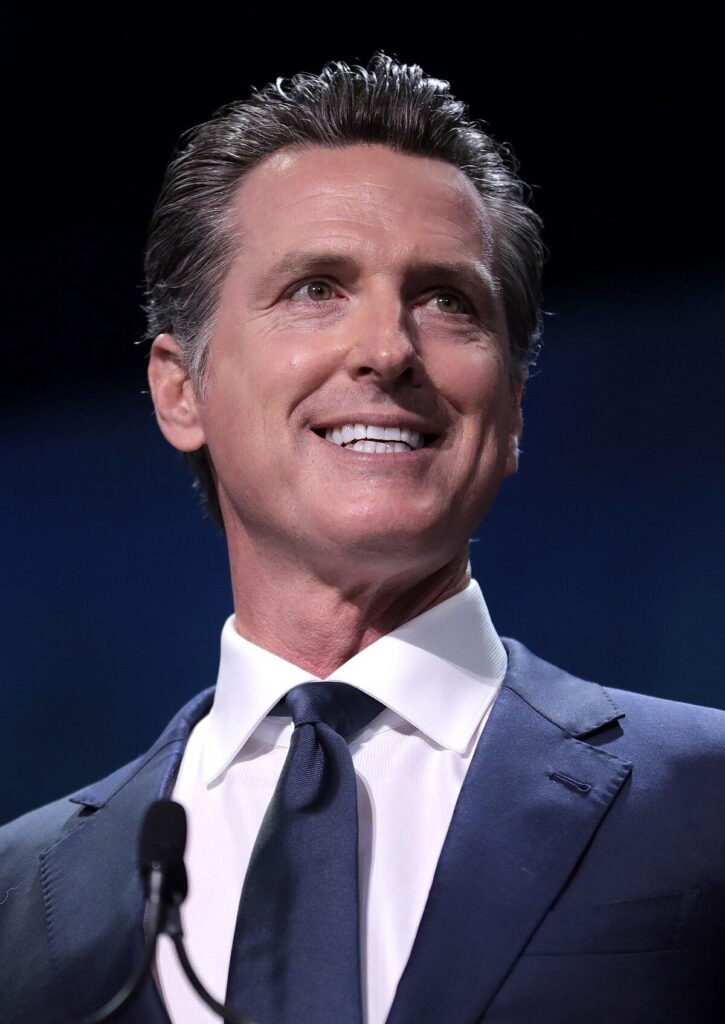California Governor Gavin Newsom has sparked controversy within his own party by publicly criticizing the participation of transgender athletes in sports, labeling it “deeply unfair.” Breaking with many Democratic leaders who generally support inclusive policies for transgender individuals, Newsom’s remarks signal a growing debate over fairness and inclusivity in competitive athletics. The governor’s comments come amid a nationwide discussion on how best to balance the rights of transgender athletes with concerns about competitive equity.
Gavin Newsom Challenges Party Line on Transgender Athletes
In a notable departure from the prevailing stance of his party, California Governor Gavin Newsom has expressed concerns over the participation of transgender athletes in female sports categories. Describing the current framework as “deeply unfair,” Newsom emphasized the need for a balanced approach that protects both inclusivity and competitive fairness. His comments have stirred debate within Democratic circles, highlighting a growing rift on how best to address transgender rights in the realm of athletics.
Key points of Newsom’s position include:
- Advocating for policies that consider both science and fairness in sports participation.
- Calling for stronger guidelines to ensure a level playing field for cisgender female athletes.
- Acknowledging the complexities involved without undermining transgender individuals’ rights.
| Stakeholder | Position | Response |
|---|---|---|
| Gavin Newsom | Concerned about fairness | Calls for balanced guidelines |
| Democratic Party | Strongly pro-trans inclusion | Mixed reactions to Newsom’s stance |
| Advocacy Groups | Support trans rights | Urge protection of sports access |
Political Implications of Newsom’s Stance Within the Democratic Party
Governor Gavin Newsom’s public critique of trans athletes’ participation in sports marks a notable divergence from the prevailing Democratic Party stance, which largely champions expansive transgender rights. This break underscores growing ideological tensions within the party, where progressive factions advocate for unfettered inclusion while moderates express concerns about fairness in competitive sports. Newsom’s remarks have fueled debate among key Democratic leaders, prompting discussions about balancing civil rights with practical policy considerations. His position challenges the party to reconcile internal differences ahead of crucial midterm elections.
The governor’s stance has elicited mixed reactions, reflecting the fractured landscape of Democratic opinion on LGBTQ+ issues. Supporters argue that Newsom is addressing legitimate concerns voiced by athletes and parents, while critics warn that his comments may alienate core voters and erode party unity. Below is a brief overview of the Democratic Party’s spectrum on this issue:
- Progressive Wing: Advocates for absolute inclusion based on gender identity, opposing any restrictions.
- Moderate Democrats: Seek nuanced policies balancing inclusion with competitive fairness.
- Conservative Democrats: Often align with Newsom’s call for more regulated participation guidelines.
| Democratic Faction | Typical Position | Political Risk |
|---|---|---|
| Progressive | Full inclusion, no restrictions | Alienating moderate voters |
| Moderate | Conditional participation based on fairness | Criticism from both ends of spectrum |
| Conservative | Stricter eligibility rules | Potential loss of LGBTQ+ base |
Analyzing the Impact on Transgender Rights and Sports Policies
Gavin Newsom’s recent comments on transgender athletes have sparked a fresh wave of debate within the Democratic Party, spotlighting an ongoing cultural and political divide. His characterization of trans sports participation as “deeply unfair” challenges the widely accepted progressive stance supporting inclusive policies. This divergence has had immediate repercussions on the discourse surrounding transgender rights, with advocates arguing that such statements could undermine the progress made in achieving equality and non-discrimination for transgender individuals.
On the policy front, Newsom’s position pressures law-makers to reconsider existing regulations and guidelines governing sports participation. The controversy centers on key issues such as:
- Fairness and competitive balance in women’s sports
- Age-appropriate guidelines for transgender youth participation
- Federal versus state-level policy authority in shaping sports governance
- Legal challenges and implications for anti-discrimination laws
| Stakeholder | Position | Potential Outcome |
|---|---|---|
| Transgender Athletes | Advocate for inclusive participation | Risk of exclusion or stricter eligibility criteria |
| Women’s Sports Advocates | Support policies for competitive fairness | Potential for increased regulations |
| Democratic Leadership | Generally support trans rights but divided on sports | Internal party debates and policy reevaluations |
| Criteria | Description | Purpose |
|---|---|---|
| Hormone Level Threshold | Testosterone <10 nmol/L for 12 months | Ensure fair physical conditions |
| Gender Declaration | Self-identified gender documented | Respect athlete identity |
| Inclusive Category | Open division as alternative | Expand participation options |
Concluding Remarks
As Gavin Newsom’s remarks on transgender athletes spark debate within the Democratic Party, the conversation over sports participation policies shows no signs of abating. With issues of fairness, inclusion, and competitive integrity at the forefront, policymakers and advocates continue to grapple with finding common ground. As this contentious topic evolves, stakeholders across the political spectrum will be watching closely to see how state and national leaders navigate the complexities involved.





